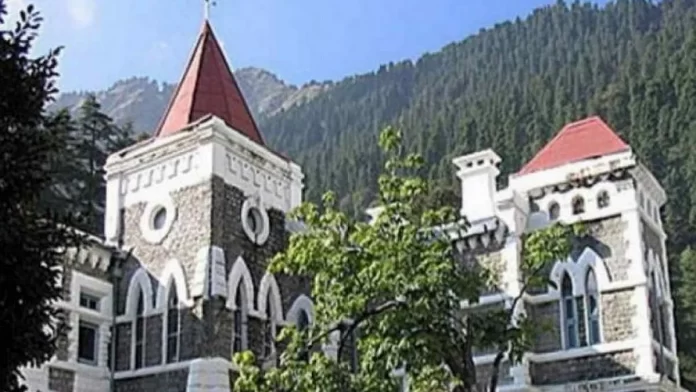New Delhi: The Uttarakhand High Court has quashed the State Government’s mining rule that allowed it to allot mining leases to bhumidhars (landowners) by way of recommendatory procedure instead of a competitive bidding process.
A bench led by Chief Justice Vipin Sanghi found the rule to be in contravention of the Supreme Court’s judgment related to the allotment of 2G spectrum delivered in 2012.
The 2012 judgment declared the government policy of first come first serve basis in grant of 2G licences to be illegal. It was declared as “unconstitutional and arbitrary” and the court quashed all 122 licences issued in 2008 by the then minister for communications and IT, A. Raja.
“It pains us to see the way in which the State is letting its valuable resource being exploited with hardly any return,” the bench, also comprising Justice Ramesh Chandra Khulbe, observed.
Also Read: Four-year-old looks for mom, family demands CBI probe into Uttarakhand encounter
Amended rule based on ‘minuscule’ royalty
The 26 September 2022 order quashed the state’s notification issued on 28 October 2021 that amended Rule 3 of the Uttarakhand Minor Minerals (Concession) Rules, 2001.
The amended rule allowed a bhumidhar to use soil, sand, rock, boulders, gravel, etc excavated in his own property for the purpose of construction on his property.
For such an extraction, it said, there was no requirement of obtaining environmental clearance and the bhumidhar could even use a JCB machine for the purpose.
Though the amended rule provided for payment of royalty on the extracted minor mineral, the amount to be paid under such circumstances was miniscule compared to the royalty price paid by a contractor who got mining lease allotted after qualifying the bidding process.
A person engaged in the business of operating mining leases for minor minerals in Uttarakhand challenged these modifications in the HC calling it “unconstitutional”. The HC in turn, stayed the impugned rule in January this year.
The amendment, his lawyer argued, allowed backdoor entry to bhumidhars in the mining trade, without a transparent and public process. Moreover, the royalty obligation of this new category of mining traders, he said, was just Rs 70 – 85 per metric tonne as opposed to Rs 460 per metric tonne payable by the petitioner and similarly-placed mining operators.
He relied on the 2G spectrum judgment to say that a similar modus operandi was being followed in the state in allotting mining leases as was done in the case of the allotment of 2G spectrum.
Also Read: After BJP leader’s wife dies in Kashipur ‘crossfire’, cops booked in Uttarakhand-UP face-off
“Mining minerals state’s property”
In its defence, the state said the new rule was to facilitate clearing of agricultural lands that get affected during the rainy season.
It said since most of the private land in Uttarakhand is situated at the foothill adjacent to rivers and other water bodies, garbage gets accumulated in the said area following the rains. However, the strict mining rule prevented the landowners from clearing their land for construction of houses and agriculture.
Dismissing the state’s explanation, the HC said, “The minor minerals are the property of the State. Merely because the same gets deposited on the lands belonging to the bhoomidhars during the flooding season, it does not become the private property of the bhoomidhar.”
The court noted that it supported the state’s objective behind the amendment, however, did not approve of the manner in which it intended to execute it. The bench said in the garb of permitting removal of the deposit to make the land available for farming, the state has actually granted substantial mining leases.
The court also faulted the low royalty rates for extraction and commercial exploitation of minor minerals in these private lands and said the charges were a fraction of the prevailing market rate.
To encourage the removal of the minor minerals from fertile agricultural land, the state could have given some concession to the bhumidhars, say “upto 10 per cent,” over the prevailing market rate, the court recommended.
“However, the respondents cannot be so charitable as to give away its rights in the minor minerals which are miniscule compared to the prevailing market rates, and that too at the cost of the petitioner, who has obtained the valuable mining rights,” the court held.
It also found that the amended rule did not contain an upper cap in the number of licences to bhumidhars, which may be granted on the recommendation of the Director General, Geology and Mining Unit.
“A completely unguided and unrestricted power is vested in the Director General, Geology and Mining Unit in this regard,” the court said.
(Edited by Theres Sudeep)
Also Read: ‘Ban construction to protect Kedarnath from avalanches’ — what expert panel told Uttarakhand govt






